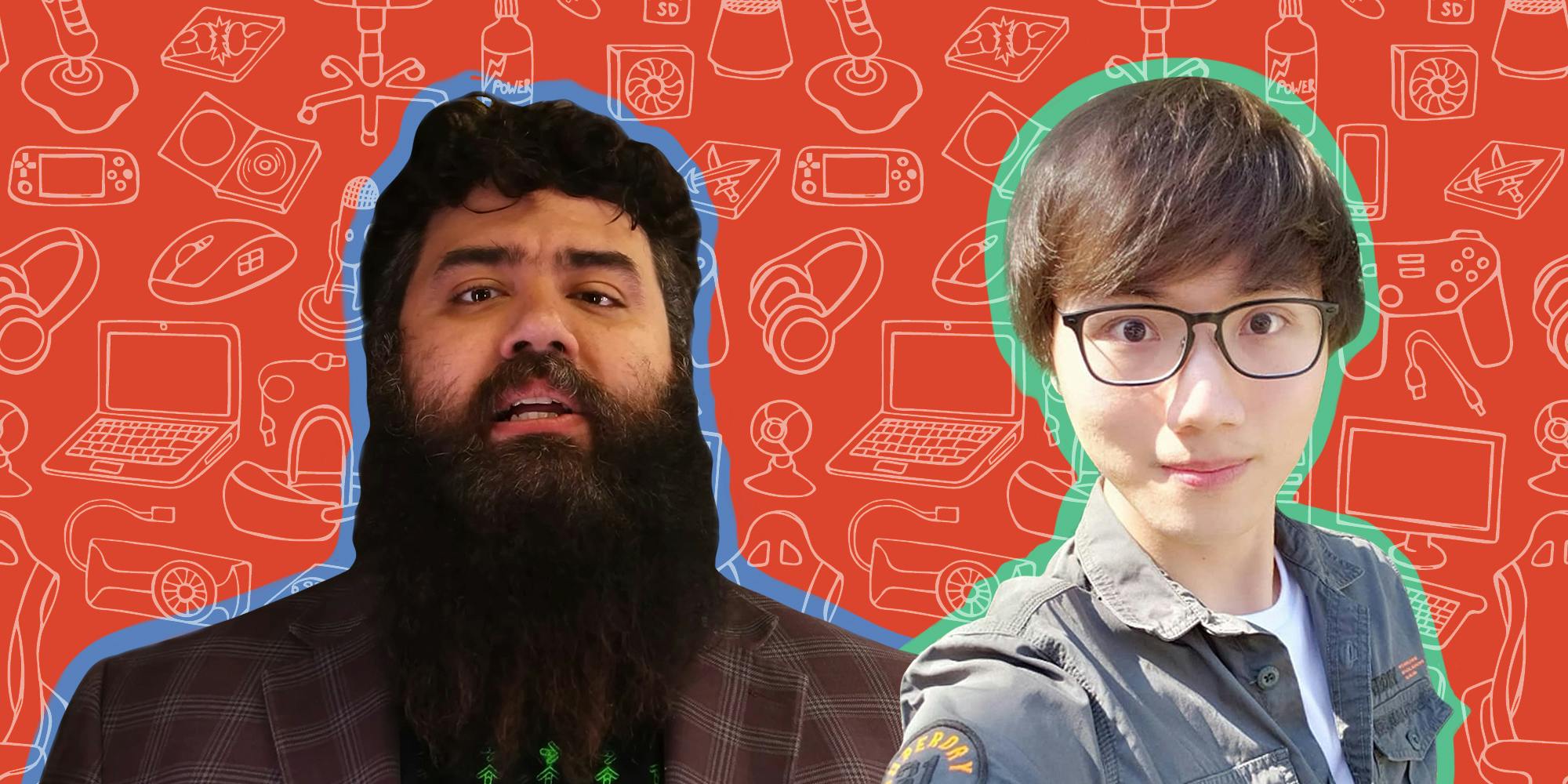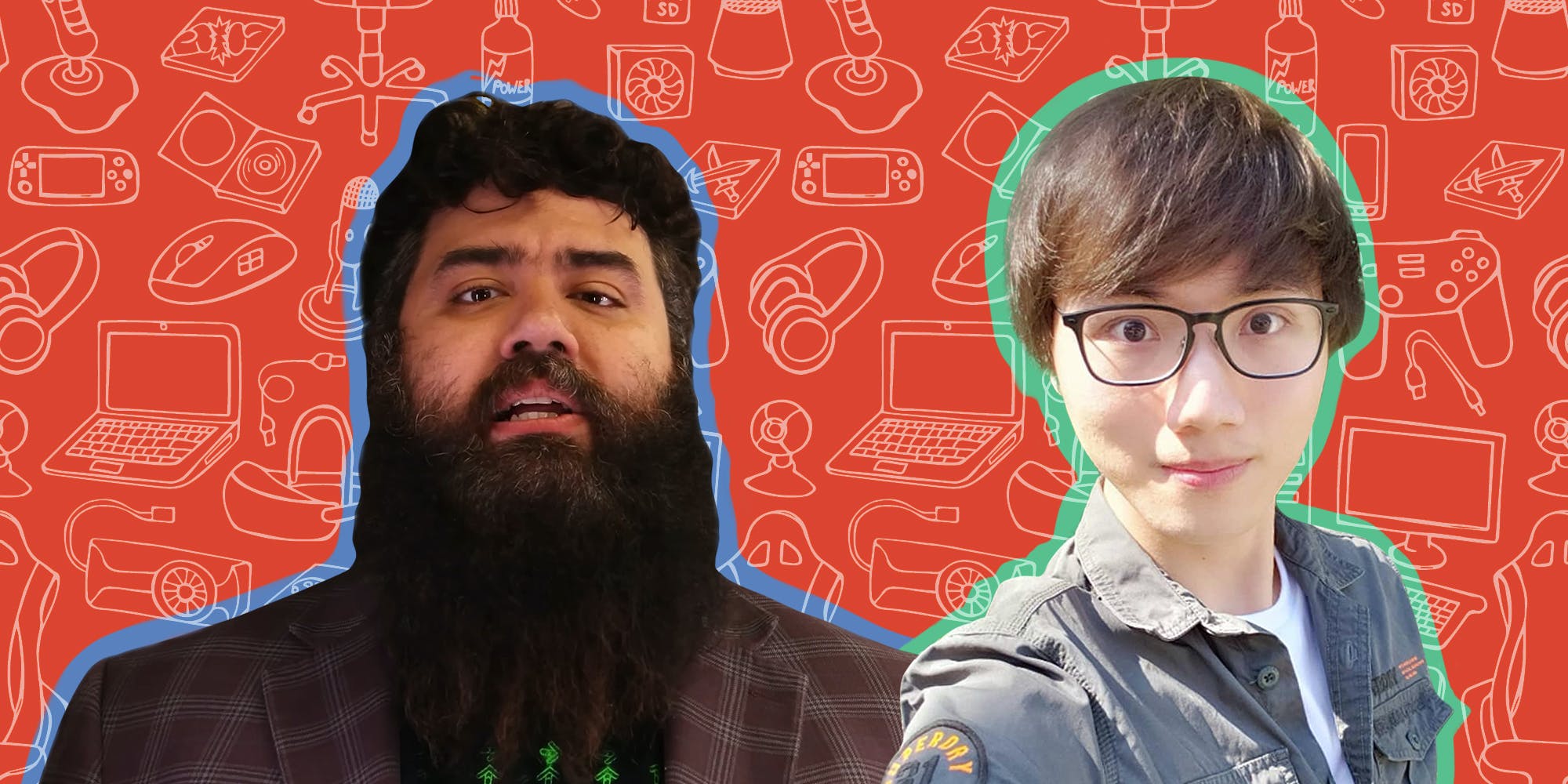
This story was originally published on Passionfruit.
When you’re a gaming creator, having a long-term career is a big question mark. The creator “economy” and industry are too new for us to know if a 40-year career is even possible. Similar to the entertainment industry, the chances are slim that your content career takes off and stays steady for 10, 20, or 30 years.
Passionfruit spoke with creators, agents, and a manager in the gaming space to find out what a long-term career might look like. We focused on mid-level creators that have been around for longer than 10 years—a lifetime in internet years. If anyone knows what a long-lasting internet career looks like, it’s them.
So, can you have a long-term internet career?
Jirard Khalil, better known as “The Completionist” with 1.6 million YouTube subscribers, and Albert Zheng, better known as “BoxBox” with 2.1 million Twitch followers, are two gaming creators who have both been streaming since 2011.
Khalil and Zheng earn their living from this work, and they employ teams of 20 people to eight people respectively. Khalil and Zheng make their money through a hodgepodge of sponsorships, ads, and subscriber fees (Patreon for Khalil, Twitch for Zheng).
But both told Passionfruit that they have lost sponsors in the past few months because of the recession. That cuts into their income (neither would disclose numbers), and Khalil even had to lay someone off for the first time.
“The thing I think about every single day: How do I get passive income for the next 10 to 15 to 20 years?” 35-year-old Khalil said, reflecting on his future career stability.
Surviving seismic shifts
Khalil said he and his team used to pump out two completed games a week, saying he believed YouTube used to algorithmically push backlogged content. But one day, he felt the platform decided that new content is king.
“I’ve been running on this treadmill for 12 years under the guise that one day I will receive a big pile of fake YouTube money, and I can go to the Cayman Islands and retire,” he added. “You always have to be outputting. Regardless of what anyone at YouTube will tell you, you cannot take a break.”
The platforms have a huge hold on any creator’s money. Twitch streamers were in an uproar in October 2022 when the platform slashed the subscription revenue share for its top streamers by 20%, dropping from a 70-30 split to a 50-50 split.
This may not sound like a lot, but when you do the math, it adds up. For instance, Zheng has 3,700 subscribers on Twitch who each pay $5 a month. If you do the quick math on that, it comes to $18,500 a month, or $220,000 a year. Prior to the revenue-sharing shift, Zheng could have kept 70% of that revenue, or over $12,950 a month. But factor in the platform’s new 50% cut, Zheng only receives $9,250 a month.
That may seem like a good amount for one person, but Zheng has an eight-person team who works on things like social media, web development, finances, and general operations. Plus, he streams for six hours for 27 days each month, so that’s a lot of time for less than 1% of his subscribers to pay him and to only receive 50% of what they give.
“Due to the economic climate, I am making less than I was before,” Zheng said, caveating that he’s “too lucky” to get upset over lost income.
Zheng also makes money through sponsorships, but as previously covered by Passionfruit, Twitch now wants a cut of those too. Streamers usually have managers or agencies facilitate their sponsorships, but in April, Twitch announced multiple “sponsorship experiments” in an effort to be a part of the facilitation process for brands and creators. While some streamers expressed interest in the platform’s assistance for new creators looking for brand deals, the huge cut that Twitch would take is more than most agencies, creators said.
Chris Wittine, a gaming and esports agent at Creative Artists Agency, told Passionfruit that top streamers might leave Twitch for other platforms due to its less generous revenue-sharing policies in 2023.
“You want to hit this critical point where you become the platform and the reason for folks to find the content, and you’re not beholden to YouTube, Twitch, etc.,” said Wittine, who reps big-name streamers like DrDisRespect and Ninja.
Keeping a level head
The economic realities of being a streamer make it difficult to succeed for any length of time. But if you want a career that lasts, there are some things to focus on, according to those who have made it work for them.
The biggest and most notorious beast to tackle among those interviewed for this piece? Mental health.
Nicole Ambrose, the manager of Jacksepticeye, Ireland’s top YouTuber with over 29.4 million followers, emphasized the importance of mental health but said it’s tricky to maintain when you’re starting out. She told Passionfruit Jacksepticeye uploaded two videos a day every day when he started—streamers like Ninja also told Passionfruit they streamed upwards of 12 to 18 hours at the start of their careers.
“The burnout is real. … Take time for yourself every once in a while,” Ambrose said. “None of it exists without your mental health.”
Zheng prioritizes his mental health because he knows he can’t perform as a streamer without it. Even when he first started out, he didn’t put much pressure on himself to become famous or make tons of money from his stream.
“It’s hard to have fun if I know that if I don’t get this many viewers, I can’t pay the bills,” Zheng said. “People won’t have much fun watching you because you’re nervous and anxious about reaching your goals, and it creates a loop where you’re not able to meet your goals. You get stressed out. Viewers will continue leaving.”
Balancing passion with monetization
Many creators who don’t report much interest in the business side of things have had long-term careers—but they have often succeeded in sustaining themselves by creating diverse streams of income, through subscriptions, merchandising, sponsorships, and other business ventures.
Khalil and Zheng do this, and it’s probably why they’ve lasted. Khalil said he was one of the first gamers to have a merch store, fully operated and owned by him. Zheng has been credited as one the first gamers to birth the concept of a “subathon,” where the more subscription pledges he gets, the longer he games for (his original subathon lasted 34 hours).
Mike Lee, a gaming and esports agent at United Talent Agency, believes that seeing yourself as a business rather than just a creator is one of the key factors to sustaining a long-term internet career. He’s worked with some of the biggest names in gaming, like NICKMERCS and H3CZ.
“We aren’t looking for just a new gamer or that esports pro player, we want to find the next Seth Rogen, who’s an actor, a writer, a producer, entrepreneur, and business owner,” said Lee. “We’re trying to find not the best gamer or the best live streamer, but who has the best outlook in terms of where their business is going to go.”
Everyone defines success differently, and in this early creator ecosystem, we won’t know for many years what a “long-term” internet career looks like. But with companies like United Talent Agency investing in the gaming creator space, and Sports Illustrated putting creators like FaZe Clan on its cover, the future looks bright for gaming creators.
Are you a gamer with insights into what it takes to build a long-lasting career? Email [email protected] to share your story.
Sign up to receive the Daily Dot’s Internet Insider newsletter for urgent news from the frontline of online.
Source: https://www.dailydot.com/unclick/gamers-career-longevity/